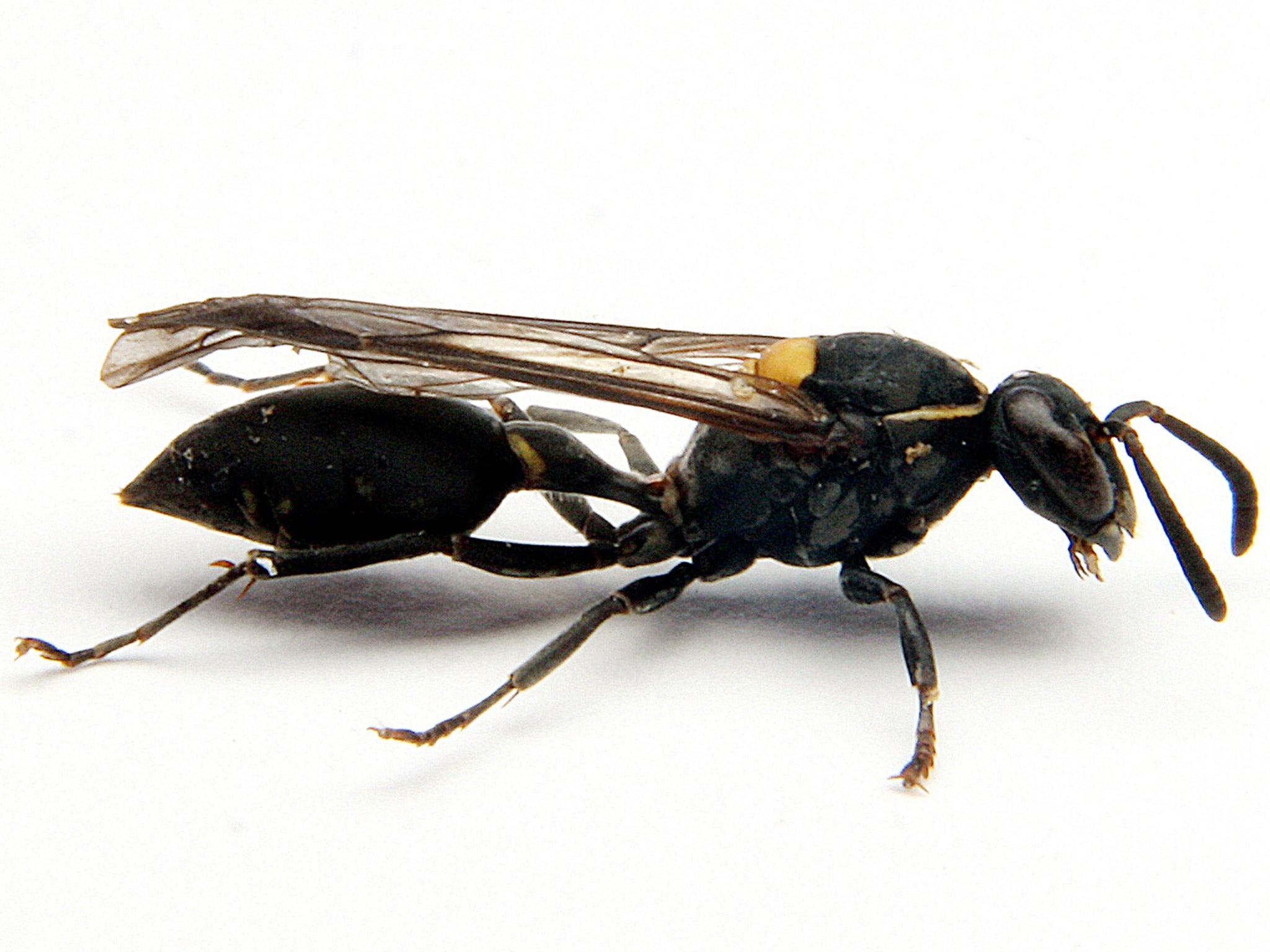Brazilian wasp sting containing 'smart' drug could help in battle against cancer
Research shows venom of Polybia paulista can suppress growth of cancer cells

Your support helps us to tell the story
From reproductive rights to climate change to Big Tech, The Independent is on the ground when the story is developing. Whether it's investigating the financials of Elon Musk's pro-Trump PAC or producing our latest documentary, 'The A Word', which shines a light on the American women fighting for reproductive rights, we know how important it is to parse out the facts from the messaging.
At such a critical moment in US history, we need reporters on the ground. Your donation allows us to keep sending journalists to speak to both sides of the story.
The Independent is trusted by Americans across the entire political spectrum. And unlike many other quality news outlets, we choose not to lock Americans out of our reporting and analysis with paywalls. We believe quality journalism should be available to everyone, paid for by those who can afford it.
Your support makes all the difference.Getting stung by the Brazilian wasp Polybia paulista may not be such a bad thing if you have cancer, research suggests.
The social wasp's venom contains a powerful "smart" drug that selectively targets and destroys tumour cells without harming normal cells, a study has shown.
In laboratory tests, it has been shown to suppress the growth of prostate and bladder cancer cells - as well as multi drug-resistant leukaemia cells.
New research has now revealed the secret of the venom toxin, known as MP1. Scientists found that it blows gaping holes in the protective membranes surrounding tumour cells by interacting with fatty molecules called lipids.
Researcher Dr Paul Beales, from the University of Leeds, said: "Cancer therapies that attack the lipid composition of the cell membrane would be an entirely new class of anticancer drugs.
"This could be useful in developing new combination therapies, where multiple drugs are used simultaneously to treat a cancer by attacking different parts of the cancer cells at the same time."
The unique way certain lipids are embedded on the outside of cancer cell membranes makes tumours susceptible to the wasp toxin, the researchers found.
In healthy cells, the same structural molecules are located on the inner membrane surface.
When MP1 binds to the lipids, it disrupts the membrane structure - creating large holes through which molecules vital to a cancer cell's survival leak out.
Co-author Dr Joao Neto, from Sao Paulo State University in Brazil, said: "Formed in only seconds, these large pores are big enough to allow critical molecules such as RNA and proteins to easily escape cells."
Future studies will examine MP1's structure in more detail and attempt to improve its selectivity and potency.
Dr Beales said the laboratory tests suggested that the molecule was harmless to healthy cells and therefore safe, but added: "Further work would be required to prove that."
The findings are published in the Biophysical Journal.
Press Association
Join our commenting forum
Join thought-provoking conversations, follow other Independent readers and see their replies
Comments